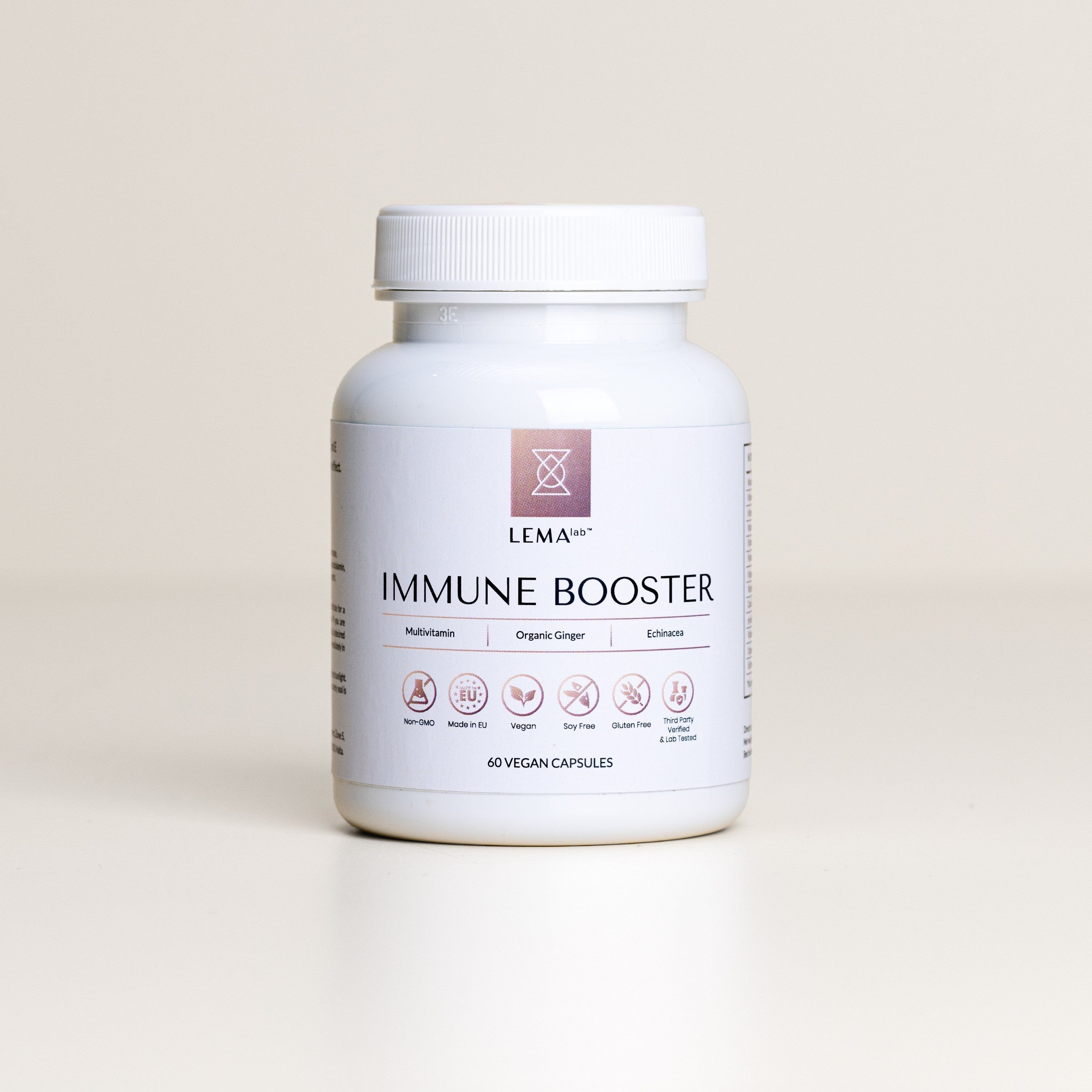
BEYOND INSOMNIA AND MUSCLE PAIN, HOW TO RECOGNISE MAGNESIUM DEFICIENCY
We often hear about magnesium supplementation as a solution for insomnia or muscular pain. But did you know that magnesium is necessary in our bodies for many other biological functions? One should know where to find it naturally before supplementing with it.
In this article, we will cover the importance of magnesium in different systems of our bodies, which foods contain significant amounts and what magnesium deficiency might look like.

MAGNESIUM FOR JOINT, MUSCULAR AND BONE HEALTH
The total amount of magnesium in a healthy adult human body is approximately 20-28g. Of this, about 60-65% is found in the bones, 27% in the muscles, and the remainder is distributed among other cells and their surrounding fluid environment. Magnesium plays a vital role in bone and teeth formation and in facilitating the nervous signals required for proper muscle contraction, relaxation, and function [9]. Additionally, research has demonstrated that magnesium has rejuvenating effects on cells and tissue.
Ensuring an adequate dietary intake of magnesium can help alleviate issues such as muscular cramps, stiffness, muscle and joint pain. Additionally, it may contribute to preventing certain conditions, such as fibromyalgia [2]. It's worth noting that other nutrients, like selenium and vitamins B and D, may also play a role in this context.

OTHER FUNCTIONS OF MAGNESIUM IN THE HUMAN BODY
Energy production: Magnesium is involved in more than 300 chemical reactions in our body, including energy metabolism; magnesium helps produce and transport energy to the human body by participating in the digestive process of proteins, carbohydrates and fats. It also assists DNA and protein synthesis [4].
Blood pressure and sugar metabolism: Research indicates that magnesium is crucial in regulating blood sugar levels and blood pressure, ensuring their normal functioning. Multiple studies have underscored magnesium's significance in preventing and managing hypertension, cardiovascular disease, and, most notably, diabetes. It achieves this by promoting vasodilation, enhancing insulin sensitivity, and contributing to the maintenance of a healthy heart rhythm [1,4].
Nervous system: The nervous system benefits from magnesium, as it aids in transmitting nerve signals and maintaining the body's mineral balance. For example, an excess of calcium without enough magnesium can overstimulate nerve cells and result in repeated electrical impulses being sent. This leads to energy loss and cell damage in the brain. It is why magnesium is considered a protector of the nervous system, helping to mitigate the effects of daily stress—like high blood pressure— and safeguarding other vital organs, including the kidneys and heart. Adequate magnesium intake has also been linked to improved mental health, potentially reducing symptoms of conditions like depression and anxiety. In summary, magnesium is a nutrient with calming and stress-reducing properties [4].
Immunity: Magnesium is regarded as an anti-inflammatory agent that reduces the expression and release of proinflammatory molecules. It also influences our immunity by regulating the multiplication and development of lymphocytes; a type of white blood cells that play a crucial role in the immune system's defense against infections and diseases.
Sleep quality: Magnesium may play a role in sleep regulation via inducing relaxation through different mechanisms. Apart from the muscle-relaxing properties mentioned above, magnesium binds to GABA (a neurotransmitter) receptors and activates GABA to reduce nervous system excitability. Additionally, a study on rats linked magnesium deficiency to a decreased concentration of plasma melatonin, a sleep-promoting hormone. Regarding human research, taking magnesium supplements can reduce the concentration of cortisol, a stress hormone, calming the central nervous system and potentially enhancing sleep quality [10].

RECOGNISING MAGNESIUM DEFICIENCY
Magnesium deficiency can be a sneaky foe, its symptoms often masquerading as general health issues. Before jumping to conclusions about a deficiency, assessing your dietary intake and getting your levels checked in regular blood tests is crucial. Here are some common complaints linked to magnesium insufficiency:
• Muscle twitches
• Involuntary spasms
• Irregular heart palpitations
• Increased muscle tension
• Muscle cramps
• Increased susceptibility to stress
• Frequent headaches
Additionally, you might experience numbness or that 'pins and needles' sensation, irritability, shorter attention span, mental confusion, and bouts of dizziness. Magnesium deficiency can also reveal itself through disequilibrium, muscular tremors, muscle wasting, irregular heartbeats, restlessness, and weakness. Researchers point out that magnesium deficiency can cause many problems such as back pain, neck pain and joint pain. People grappling with magnesium insufficiency often find themselves in a perpetual state of fatigue, irritability, nervousness, muscle stiffness, and difficulty concentrating [8, 9].

FOOD SOURCES OF MAGNESIUM
The recommended daily magnesium intake for adult men is 420 milligrams and 320 milligrams for women. First, try to get this mineral from food, especially high-fibre foods such as dark green leafy vegetables, unrefined grains, and beans, to maintain a healthy magnesium level. Some foods with an exceptionally high amount of magnesium include oat flakes, brown rice, corn grains, almonds, hazelnuts, peanuts, cocoa powder and roasted coffee beans [5,6].
If you're concerned about low magnesium, you may want to ask your doctor for a blood test before supplementing.

BOTTOM LINE
In conclusion, magnesium is not just a remedy for insomnia or muscular pain; it's indispensable for many crucial bodily functions. This article has delved into the significance of magnesium in various systems, from supporting joint, muscular and bone health to its pivotal role in energy production, blood pressure regulation, and sugar metabolism. Magnesium doesn't stop there—it also extends its protective embrace to our nervous system, immunity, and sleep quality, offering tranquillity in times of stress. Recognising magnesium deficiency is essential, as its symptoms can mimic everyday health concerns.
Remember, if you suspect you lack magnesium, consulting with your doctor and considering a blood test is the first step toward better health.














Leave a comment
This site is protected by hCaptcha and the hCaptcha Privacy Policy and Terms of Service apply.